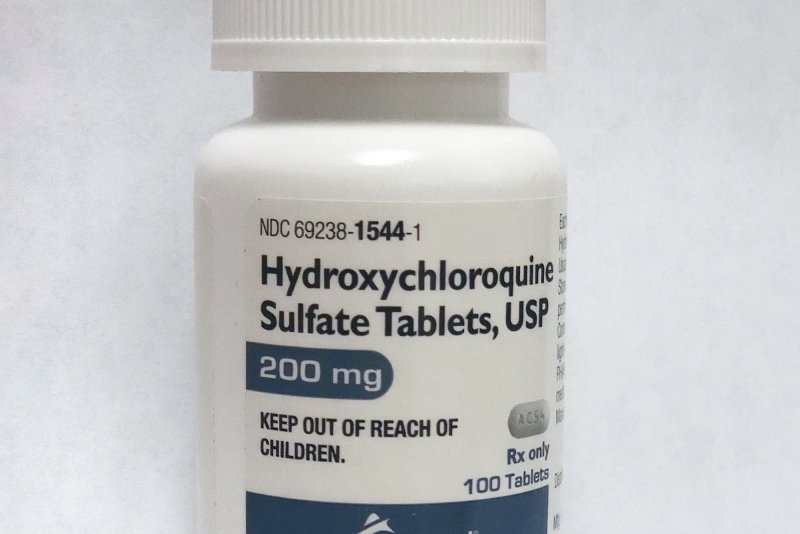
The World Health Organization announced Saturday that it has discontinued the hydroxychloroquine trial for patients hospitalized with COVID-19. UPI File Photo | License Photo
July 4 (UPI) -- The World Health Organization announced Saturday that it discontinued its trial on hydroxychloroquine's effect on COVID-19 patients in hospitals.
WHO said in a statement that it accepted a recommendation from the Solidarity Trial's International Steering Committee that it stop the testing of the drug.
The decision to cease the trial came after interim trial results showed that the anti-malaria drug had little or no reduction in mortality of patients hospitalized for the novel coronavirus.
WHO also announced Saturday that it discontinued a trial for lopinavir/ritonavir arms, which are used along with other medications to treat HIV infection after finding in the interim trial that it similarly had little or no reduction on deaths of hospitalized COVID-19 patients.
The decision does not affect other studies evaluating these drugs for non-hospitalized patients, WHO said.
The National Institute of Health similarly halted a hydroxychloroquine trial last month after a study showed no harm or benefit from the anti-malaria drug's use in hospitalized COVID-19 patients.
Last month, British researchers similarly found no benefit of hydroxychloroquine.
President Donald Trump has touted hydroxychloroquine's potential use against COVID-19
and said he used the drug himself for two weeks in May. White House physician Dr. Sean Conley said last month that Trump completed the two-week regimen "safely," after weighing risks and hypothetical benefit.
Still, citing safety and efficacy concerns, the U.S. Food and Drug Administration withdrew Emergency Use Authorization for anti-malaria drugs hydroxychloroquine and chloroquine last month.
FDA Chief Scientist Denise Hinton said the agency would no long allow either drug to be prescribed to hospitalized COVID-19 patients or be used in clinical trials through the emergency authorization it gave in March as both are "unlikely to be effective."
and said he used the drug himself for two weeks in May. White House physician Dr. Sean Conley said last month that Trump completed the two-week regimen "safely," after weighing risks and hypothetical benefit.
Still, citing safety and efficacy concerns, the U.S. Food and Drug Administration withdrew Emergency Use Authorization for anti-malaria drugs hydroxychloroquine and chloroquine last month.
FDA Chief Scientist Denise Hinton said the agency would no long allow either drug to be prescribed to hospitalized COVID-19 patients or be used in clinical trials through the emergency authorization it gave in March as both are "unlikely to be effective."
RELATED Kimberly Guilfoyle, Trump campaign official, Donald Trump Jr.'s girlfriend, has COVID-19
SHE WAS AT MOUNT RUSHMORE AND INTRODUCED DON JR.
SHE WAS A SUPER SPREADER AT A SUPER SPREADER EVEN
A report published in the journal Heart Rhythm last month found that hydroxychloroquine led to a potentially deadly heart rhythm disorder in an 84-year-old woman treated for COVID-19. The FDA also recently cautioned against using hydroxychloroquine or chloroquine for COVID-19 outside of hospital setting or clinical trial due to risk of heart rhythm problems.
https://www.fda.gov/drugs/drug-safety-and-availability/fda-cautions-against-use-hydroxychloroquine-or-chloroquine-covid-19-outside-hospital-setting-or
The WHO had resumed the hydroxychloroquine medical trials early last month after pausing the tests on May 25 for review by the Data Safety Monitoring Board.
upi.com/7019190
https://www.fda.gov/drugs/drug-safety-and-availability/fda-cautions-against-use-hydroxychloroquine-or-chloroquine-covid-19-outside-hospital-setting-or
The WHO had resumed the hydroxychloroquine medical trials early last month after pausing the tests on May 25 for review by the Data Safety Monitoring Board.
upi.com/7019190

No comments:
Post a Comment